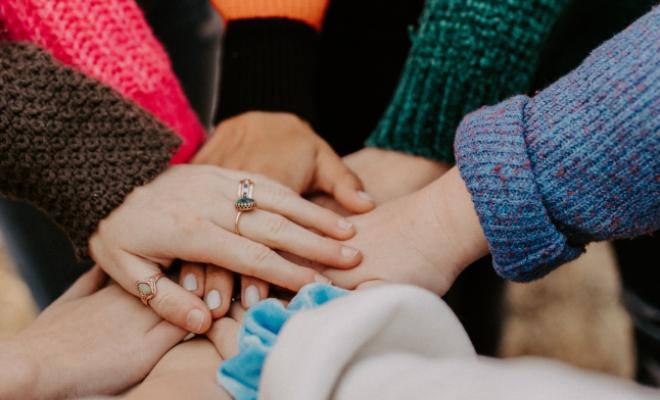06 Mar 2023
Since 2019 we have supported our Friends of the Earth Local Groups and Climate Action Groups in different ways. So that we can better support our growing network we've merged the two network strands together, and our groups are now known as local action groups.
Why are Friends of the Earth local group and Climate Action group networks merging?
Our local group network has been around for decades and had incredible impacts in their local areas. In 2019 we launched the ambitious Climate Action group network, which grew rapidly in size and number. Groups in the two networks had different levels of campaigning expectations: local groups actively represent Friends of the Earth at a local level, are expected to sign a charter and trademark licencing agreement and have at least one coordinator managing the group. Climate Action groups on the other hand are involved more specifically in our Climate Action Plan campaign that focuses on lobbying councils to commit to and secure long-term Climate Action Plans. Climate Action groups weren’t required to sign a licence agreement or charter, instead they read our policies and registered online.
Over time, regional staff and network support staff began providing similar support to both networks. Naturally, many groups in both networks joined different campaigns.
Our networks continue to grow and we’ve learnt that we can support groups effectively by merging the two networks into one centred on our shared values and who actively campaign to promote a fair and just world. By doing this, regional staff who support local action groups will have more time to spend mentoring and training them to develop impactful campaigns. Groups will have an equitable process for joining the network.
We will have higher expectations that groups actively join Friends of the Earth campaigns such as United for Warm Homes, or campaign locally for the climate and ecological crises, anti-racism, solidarity and justice.
This does unfortunately mean that some groups will not be eligible to register into the new network as they don't actively campaign or keep in touch with their regional staff. They are encouraged to reach out for support and re-join in the future if they’d like to.
What are the expectations for local action groups in the merged network?
Groups are expected to get involved in Friends of the Earth campaigns such as United for Warm Home, Climate Action Plans, Corporate Justice, Healthy Environment. The list of campaigns goes on, because there’s a lot that needs to change. We do understand that our campaigns won’t be relevant to every community out there, and groups can work on issues that affect them, resonate with their communities and support our collective vision for empowered communities, climate justice, a healthy environment and fair world.
Groups must maintain contact with their regional staff through collective agreements and provide updates on their group and campaign developments at least twice a year. This could be through a regular check in phone call, an email update, an in-person catch up or meeting online. There are many ways to keep in touch with your regional staff members.
Groups must be open to welcoming new members of the general public to join their groups. We need to be honest and real about why we need new people. In order to build a world that’s fair and just, everyone needs to be involved. We’re more powerful when people from all walks of life join together and work together. That does mean that groups may have some challenging conversations, but your regional staff are always here to support and coach you on how to welcome new members and manage challenging conversations.
Are Climate Action groups required to change their name to "Friends of the Earth (local area)"?
No, Climate Action groups are very welcome to keep their current name. We understand that a group name forms a strong part of a group’s identity and presence within its community. Many Climate Action groups have campaigned in their local areas for more than 3 years and forcing you to change your name goes against our values.
What is the difference between the old charter and the new charter?
The old charter only included the agreement between Friends of the Earth and local groups. It listed the expectations for local groups, and the support Friends of the Earth provides.
The new charter is updated to include:
- our shared values
- local action group expectations
- support from Friends of the Earth
- terms of the agreement
- our policies
- appendix including the trademark licence agreement
The trademark licence was maintained in a separate document.
Where is the trademark licence?
The trademark licence is now included in the new local action group charter. It’s on pages 7-10.
My group is a Friends of the Earth local group and we’d like to stay registered. We signed the original charter and trademark licence agreement before November 2022. Do we need to sign the new charter?
Yes. All groups must sign the new charter even if you signed a previous charter. We’ve updated the charter to reflect the experiences of both local groups and Climate Action groups. It now incorporates our shared values, policies and agreement between Friends of the Earth and local action groups.
If you are a Friends of the Earth local group, please ensure you sign the trademark licence agreement on pages 7-10 of the charter.
My group is a Climate Action group and we’d like to stay registered. Do we need to sign the new charter?
Yes – all groups must sign the new charter even if you registered as a Climate Action group. This is to ensure that all groups adhere to the same policies, values and agreement between Friends of the Earth and local action groups.
My Climate Action group is signing the charter, do we need to sign the trademark licence agreement?
No you don’t need to sign the trademark licence, just the charter. If you’d like to change your group name to "Friends of the Earth (local area)", then you are required to sign the trademark licence agreement.
My group doesn't want to register, what should we do?
Please contact [email protected] to inform us of your decision. We’ll help you de-register.
My group doesn't meet the conditions of the new charter, can we register?
Unfortunately, you won't be able to register at this time. If you think your group can work together to meet the conditions, please get in touch with [email protected] or your regional staff.
My group has deregistered, are we still covered by your insurance policy?
No, you’re no longer covered. We can only provide cover to groups who register and have that registration confirmed by network support and regional staff.
We're a local group that uses the name Friends of the Earth. There's a Climate Action group in our area that might want to use the Friends of the Earth name too. Is there a process to manage this?
If a Climate Action group wants to sign the trademark licence agreement and use the "Friends of the Earth" name, they're required to consult with their regional campaigns organiser. The decision as to whether they would be able to sign the agreement and make use of the name would be up to the discretion of the regional campaigns organiser, and if there is already a longstanding Friends of the Earth local group in the area, they'll be consulted on the matter before any action is taken.
My local action group wants to register as a charity, is this something we can do?
In general our advice on becoming a charity is that for the vast majority of local action groups in the Friends of the Earth network, charitable status isn't necessary and would place an administrative burden and campaigning restrictions that far outweigh the benefits. Find out more about local action group and charity status.



